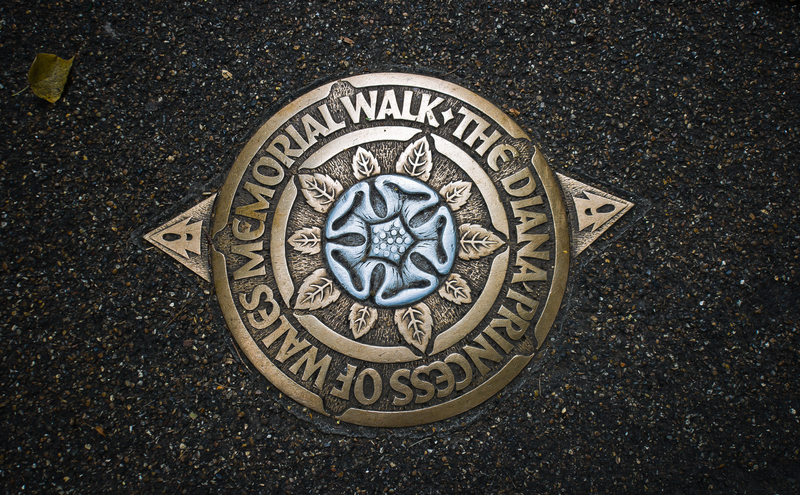Crucial Implements for the Devoted Gardener
Posted on 25/06/2025
Crucial Implements for the Devoted Gardener: The Ultimate Guide to Gardening Tools
Gardening is more than just a pastime--it's a passion and, for many, a way of life. Whether you're tending to a small balcony garden or managing expansive flower beds, having the right gardening implements makes all the difference. In this comprehensive guide, we delve into the essential implements for the devoted gardener, offering expert tips on what to look for, how to use them effectively, and how to maintain a thriving garden season after season.
The Importance of High-Quality Gardening Implements
Why are quality implements so vital? The answer is simple: well-crafted garden tools save time, minimize effort, and maximize results. Low-quality implements, by contrast, can break, cause injury, or even damage your plants. For the dedicated gardener, investing in superior tools is a decision that pays off for years to come.
- Efficiency: High-quality tools streamline daily tasks, from digging to pruning.
- Durability: Superior materials and construction extend the longevity of your tools.
- Plant Health: Clean, sharp implements support healthy plants, preventing disease spread.
- Comfort and Safety: Ergonomic designs reduce fatigue and lessen the risk of injury.

Essential Gardening Tools: What Every Devoted Gardener Needs
When curating your arsenal, focus on crucial gardening implements that suit the kinds of plants you grow and the size of your garden. While gardening toolkits can be extensive, some implements are universally indispensable.
1. Digging and Soil Preparation Tools
The foundation of a healthy garden is well-tilled, fertile soil. Having the right implements helps achieve this ideal.
- Spade or Garden Shovel: For digging planting holes, edging beds, and moving soil, a sturdy garden shovel is a must-have.
- Garden Fork: These robust, pronged implements break up clumps and aerate dense soils, improving drainage and root development.
- Hand Trowel: Ideal for precision planting, transplanting seedlings, and working in tight spaces.
- Hoe: Perfect for breaking up compacted earth, removing weeds, or creating furrows for seeds.
2. Planting and Maintenance Implements
The devoted gardener knows that planting and maintenance are ongoing processes requiring specialized tools.
- Pruning Shears (Secateurs): Essential for snipping branches, deadheading flowers, and shaping shrubs.
- Loppers: With longer handles and bigger blades, loppers allow you to cut thicker branches with ease.
- Garden Scissors or Snips: Handy for harvesting herbs, cut flowers, and performing delicate pruning tasks.
- Weeder: A small tool designed to root out persistent weeds with minimal soil disturbance.
- Garden Knife: Versatile and sharp, it's useful for dividing perennials, opening bags, and other cutting chores.
3. Watering and Irrigation Tools
Consistent watering is key to a flourishing garden. For this, appropriate watering implements are required.
- Watering Can: A lightweight can with a detachable rose for gentle watering of seedlings and delicate plants.
- Garden Hose: Choose a kink-resistant, durable hose with adjustable nozzles for versatile watering needs.
- Soaker Hoses or Drip Irrigation: For larger gardens, these systems ensure targeted, efficient watering with minimal waste.
- Rain Barrel: Collect rainwater and use it to water your garden sustainably.
4. Soil and Plant Health Implements
Healthy soil leads to robust plants. Leverage these tools to test, enrich, and monitor your garden's soil.
- Soil pH Tester: Understand the acidity or alkalinity of your garden bed for optimal plant nutrition.
- Compost Bin or Tumbler: Recycle organic waste into nutrient-rich compost to feed your plants.
- Mulching Fork: Spread mulch efficiently to suppress weeds, retain moisture, and regulate soil temperature.
- Measuring Tools: Accurate measuring tools ensure correct plant spacing and fertilizer application.
5. Implements for Garden Clean-Up and Care
Maintaining a tidy, well-cared-for garden is essential for disease prevention and overall aesthetics.
- Garden Rake: Collect fallen leaves, smooth out soil, and spread mulch with ease.
- Leaf Blower (Manual or Electric): Speeds up seasonal clean-up tasks, especially in large gardens.
- Wheelbarrow or Garden Cart: Transport soil, plants, compost, and debris without strain.
- Gloves: Protect your hands from cuts, blisters, and soil-borne pathogens with durable, comfortable gardening gloves.
How to Choose the Right Gardening Implements
The wide variety of gardening tools available can be overwhelming. Here is a step-by-step approach to selecting the best implements for devoted gardeners:
- Assess Your Garden's Needs: Small containers, raised beds, or open ground all require different tools.
- Prioritize Comfort: Look for ergonomic handles, lightweight materials, and balanced designs that reduce strain and fatigue.
- Material Matters: Stainless steel blades resist rust, while hardwood handles offer durability. Avoid flimsy plastics.
- Read Reviews: Online forums and gardening communities are rich resources for honest, experience-based recommendations.
- Invest in Quality: A slightly higher initial investment pays off with tools that last longer and perform better.
Maintenance of Gardening Implements: Best Practices
Your gardening implements are only as good as the care you provide them. Proper maintenance preserves their performance and extends their lifespan. Here's how:
- Clean After Each Use: Rinse off soil and sap, and wipe dry to prevent rusting or blade dulling.
- Sharpen Blades Regularly: Pruning shears, knives, and hoes stay safer and more effective with regular sharpening. Use a whetstone or sharpening tool as recommended.
- Oil Moving Parts: Periodically apply light machine oil to pivot points and handles to keep them moving smoothly.
- Store Properly: Hang tools in a dry, sheltered space to avoid weather damage and accidents. Use tool racks or wall hooks for convenience.
- Inspect and Repair: Check implements for cracks, loose handles, or dull blades. Address minor repairs promptly to prevent bigger issues.
Advanced Implements for the Experienced Gardener
Once you've mastered the basics, expanding your tool selection to include specialized implements unlocks new gardening possibilities.
- Broadfork: Popular among organic gardeners, this large tool aerates soil without inverting layers, protecting microbe health.
- Sickle or Scythe: Efficient for harvesting grains or managing wildflower meadows.
- Grafting Knife: For those who propagate fruit trees or roses, a sharp, precise grafting knife is invaluable.
- Dibber: Perfectly spaces out bulbs and seedlings in garden beds.
- Soil Block Maker: For seed starting, these create compact blocks that eliminate the need for plastic pots.
Specialized Implements for Eco-Friendly Gardeners
Sustainable gardening relies on tools and techniques that minimize environmental impact.
- Compost Aerator: Enhance compost breakdown with a tool that mixes pile material efficiently.
- Watering Wands: Save water and prevent overwatering with targeted, gentle watering of plant roots.
- Mulch Carrier: Reduce plastic waste by using reusable carriers, not disposable bags, for transporting mulch.
Tips for New Gardeners: Building Your First Toolkit
If you're just starting, keep it simple but focused. The essential implements for beginner gardeners include:
- Garden Hand Trowel
- Pruning Shears
- Watering Can
- Garden Gloves
- Small Garden Fork
As your skills and garden expand, add more specialized implements based on your unique needs and interests.

Frequently Asked Questions About Gardening Implements
Are expensive garden tools really worth it?
Generally, yes! High-end implements boast sharper blades, more durable materials, and better ergonomics. Over time, they outperform budget options and require fewer replacements.
How should I clean and store my implements?
Rinse off dirt, dry thoroughly, and hang on pegs indoors. For blades, apply a thin layer of oil to prevent rust, especially before storing for winter.
Can I use power tools in a home garden?
Absolutely! Consider battery-powered trimmers, hedgers, and tillers for larger spaces. Just ensure you're comfortable handling them safely.
What gardening implements are best for seniors?
Tools with lightweight construction, softer grips, and ergonomic shapes are ideal. Look for long-handled implements to minimize bending and reaching.
How often should I replace my gardening tools?
With proper care, quality gardening implements last many years. Replace items when they become unsafe, overly worn, or ineffective.
Conclusion: Equip Yourself for Gardening Success
The devoted gardener's toolkit is built on quality, versatility, and comfort. By investing in the crucial implements outlined in this guide, you'll transform your gardening experience--making every hour spent outdoors more productive, enjoyable, and rewarding. Whether nurturing delicate flowers, cropping vegetables, or maintaining lush borders, the right tools empower you to create and sustain your dream garden.
Start with the basics, maintain your implements with care, and expand your collection as your enthusiasm grows. With the right gardening tools in hand, you're well equipped to cultivate a thriving, beautiful, and sustainable garden for years to come.
- Dig deep, plant strong, and harvest happiness--one tool at a time!


